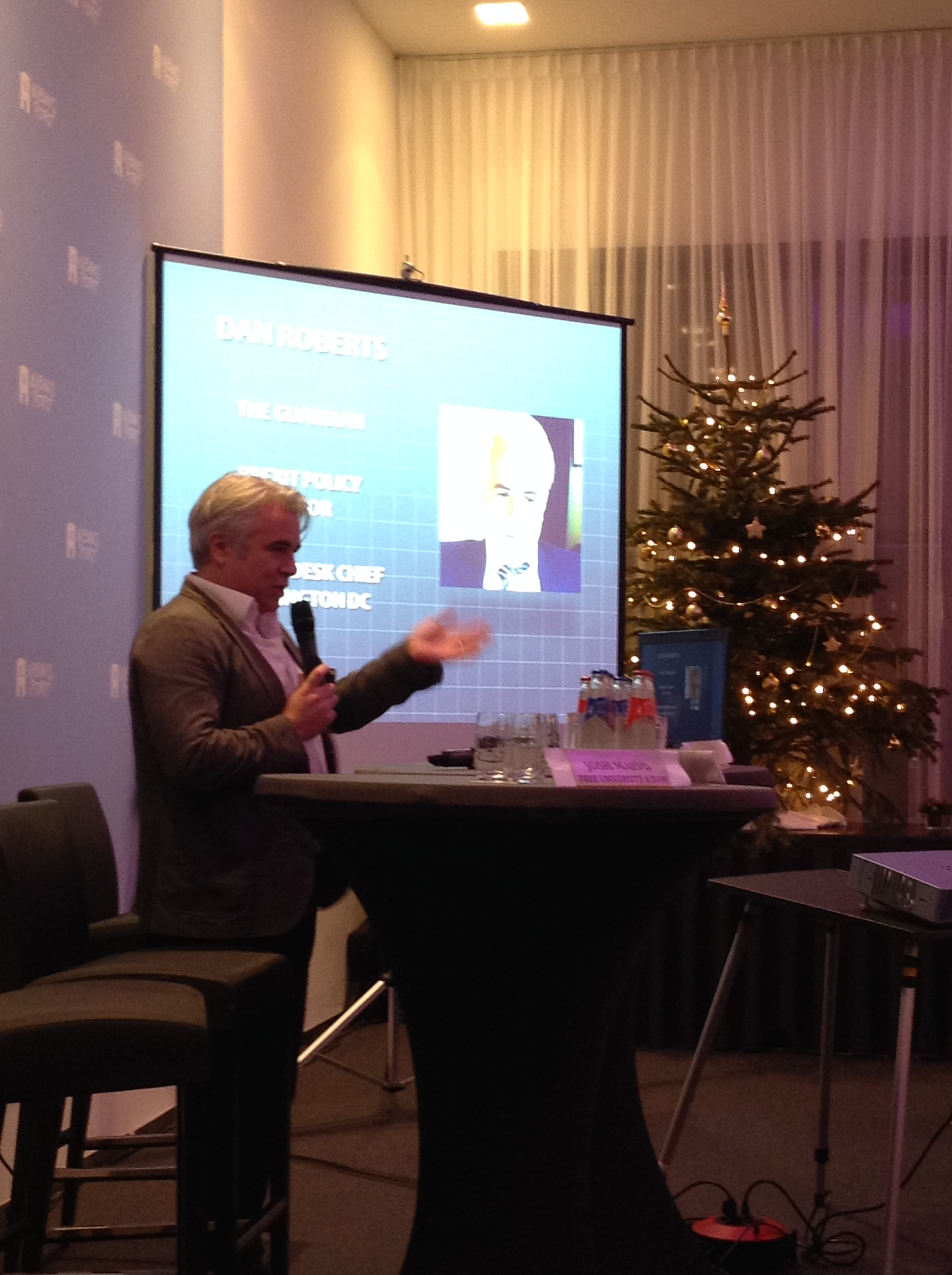March 25-26, 2017 was a most curious weekend in the Italian capital where people from all over Europe had gathered on the occasion of the 60th anniversary of the Treaty of Rome. With the political unease mounting in the wake of Brexit, the Trump election, and with various elections in EU member states on the horizon, not everybody was in the mood for a party.
Walking across town, one could see the closed-off areas around the buildings where the European officials would meet; witness the separate avenues reserved for the seven different citizens’ marches (and never the seven should meet); and come across the few remaining, slightly disoriented Saturday shoppers and tourists looking for diversions. Most local Romans had stayed home, discouraged by the fact that several main museums, tourist sites and popular shops had closed their doors out of fear of possible ‘terrorist attacks or riots’… Sure, you never know these days.
As if to challenge and defy the troubled, soul-searching atmosphere surrounding this 60th anniversary of the European postwar project, a beautiful Roman spring sun was shining over the various pro- and anti-European passionados taking to the streets. Red, orange and pink blossoms on all trees, gorgeous light on all the Roman antiquities. Another Europe asserting itself.
The EBN was represented in Rome all day on Saturday, and first attended the full-house political forum ‘Europe fights back’, organized by the European Movement International, together with the UEF and Young European Federalists. In a packed Centro Congressi Roma Eventi, just behind the Piazza di Spagna, a chorus of political figures, MEPs, MPs, academics, journalists, civil society and youth representatives joined other European activists to discuss the future of Europe in a series of lively panels.
In the spirit of the special letter recently issued by the honorary council of the European Movment International (http://europeanmovement.eu/news/a-more-fair-safe-sustainable-and-inclusive-eu/), most panelists were constructive but not uncritical. As one of the panelists, Guy Verhofstadt, had it: ‘We are critical of Europe but not so stupid as to want to destroy it.’
When asked what people valued about all the work done in the European institutions over the last 60 years, most answers echoed the importance of the relative peace on the continent since the late 1940s. People underscored the basic values of security and prosperity to which the EU had substantially contributed. As several speakers reiterated: Europe may have been reshaped many times, but its values remain. They reminded the audience of the ways in which for decades the European institutions had managed to check the ugliest expressions of national egotism, which in the past so often had torn the continent apart.
Most speakers, however, were far from complacent. Pointing to the many worrying signs of new nationalism, everybody agreed that the familiar post-WWII narratives no longer suffice. Time has come for a bold revisiting of the EU, involving new pledges to Europe’s core values and a firmer institutional reconfiguration to live up to Europe’s promises. Many felt that too much energy had already been wasted in internal strife. No surprise, the EU had lost much of its ‘sexyness’ and appeal among large groups of citizens.
Many speakers mounted strong pleas for ‘major acts of courage and new institutional vision’. Much more coordinated attention should be paid to the great challenges and transformations of our days in the domains of climate, energy, ecology, new economic policies, new democracy. Several contributors argued for a smart transfer of power to citizens, notably the young. In the words of the president of the European Youth Forum: ‘The youth are not just the future of Europe, they are its present’. All agreed that 2017 should be a year of much deeper reform and conserted action, to prevent the European project from disintegrating under our eyes.
Around mid-day, the congress participants transferred to the Piazza Bocca della Verità (‘mouth of truth’), to join the March for Europe, organized by a series of pro-Europe organizations.
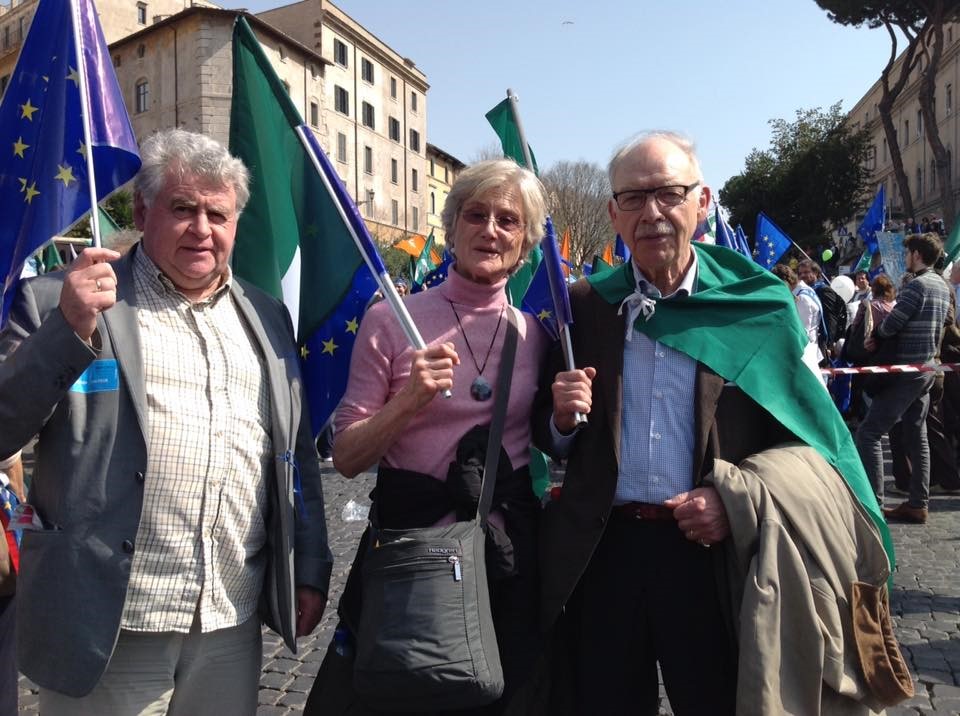
Thousands of people joined this march to the Colosseum, where speakers reminded the crowds about Europe being primarily a humanistic project.
Meanwhile, a couple of miles away from the Colosseum on the Via Cavour, a March of the Movement of Nationalists had gathered a thousand people, carrying banners for ‘La Patria’, ‘Our own Identity and Against this Europe’, ‘for national sovereignty’, and against ‘gender and gays’, ‘banks’, ‘Bolkestein’ or anti the ‘EU’ full-stop (as in ‘Fuck EU’).
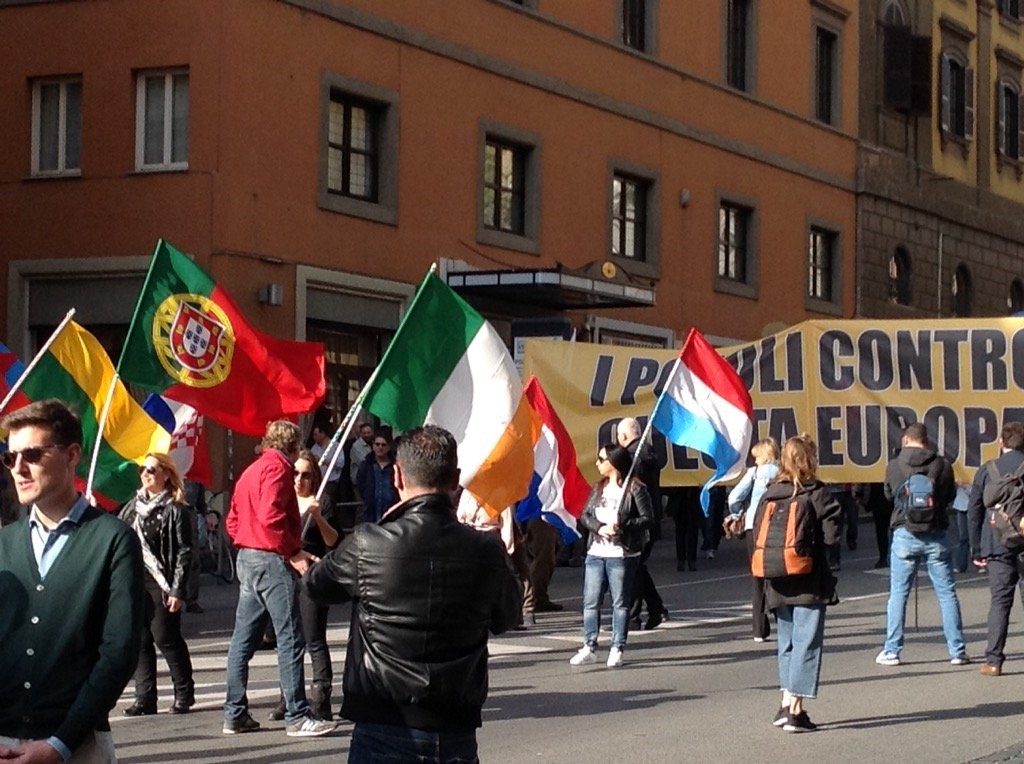
In yet another quarter of the city, in the Teatro di Roma, the DiEM25 movement – led by Yanis Varoufakis and rapidly gathering force among people interested in new democratization of Europe -was preparing its large-scale event ‘A New Deal for Europe: A Time of Courage’, scheduled for later that day.
(See link to live stream recording: https://diem25.org/the-time-of-courage-diem25-live-in-rome/)
Walking around town and attending these various events, three observations stood out. All Europe gatherings in town had attracted people with considerable energy and passion. All marches had mobilized a clear percentage of young people, albeit with very different voices. And all gatherings took place in their own spaces, without much interaction with the other assemblies: people uttering their views on Europe in a troubling kind of segregation, with no visible attempts to connect.
This exposes perhaps the most pressing challenge to anyone interested in European reform. As is increasingly manifest, for instance in the results of recent elections around Europe, we are facing widening social divides between citizens and hardening silos. In the face of this predicament, a much more fundamental labour of reconnection is required. The current anguish in Europe has many well-documented sources: economic, cultural, effects of globalization. But rather than rearticulating the same anxieties over and over again in segregated spaces of deliberation among like-minded people, we need to re-establish new meeting- and dialogue arenas to find some degree of common ground and shared solutions between people of different walks of life.
So here’s the burning question. Can we drop the unproductive anguishing in segregated spaces (online and offline) plaguing European discussions today and start devoting considerable energy to reconnecting? Can we prioritize the creation of more shared spaces to come up with solid solutions for the future? Can we put the rich traditions of knowledge of Europe to better common use? Can we actually meet face to face for proper dialoue, engage in more respectful exchanges and explorations, and build a fairer future from there? Can we? Still?
Godelieve van Heteren, chair European Movement Netherlands (EBN)
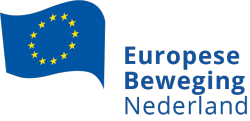
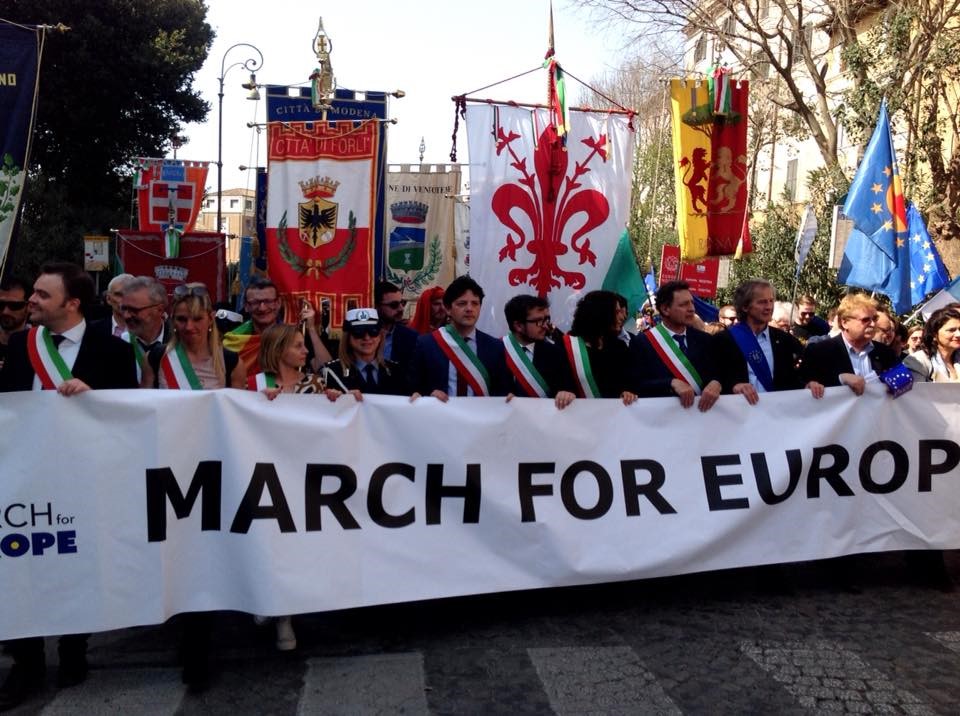
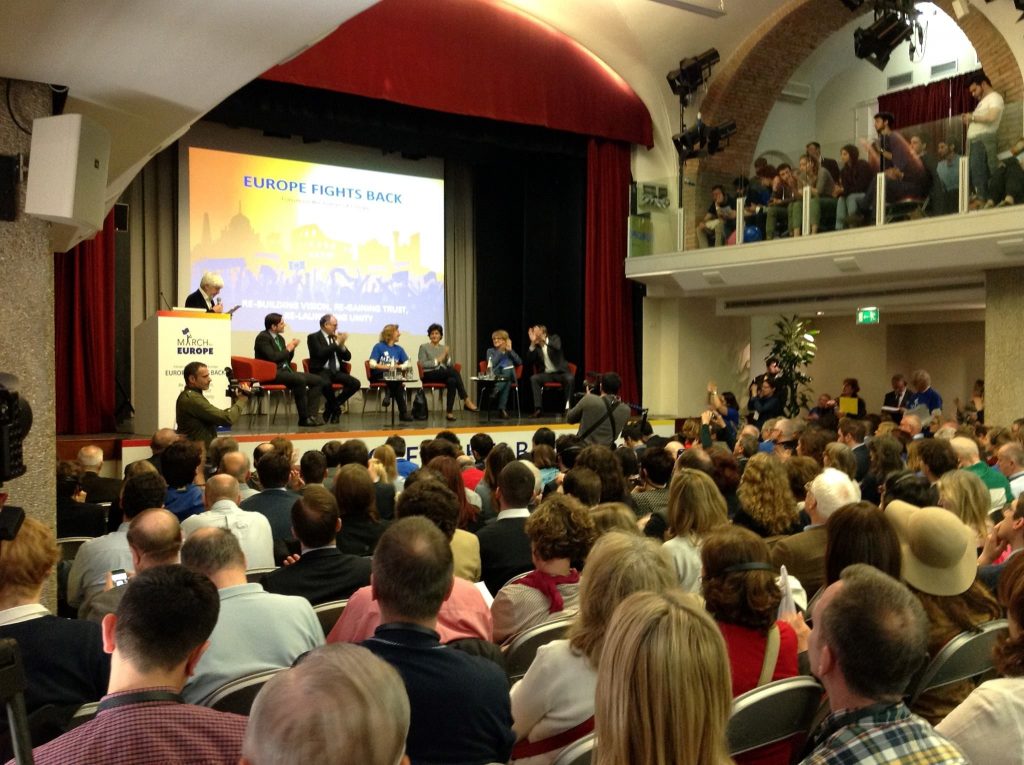
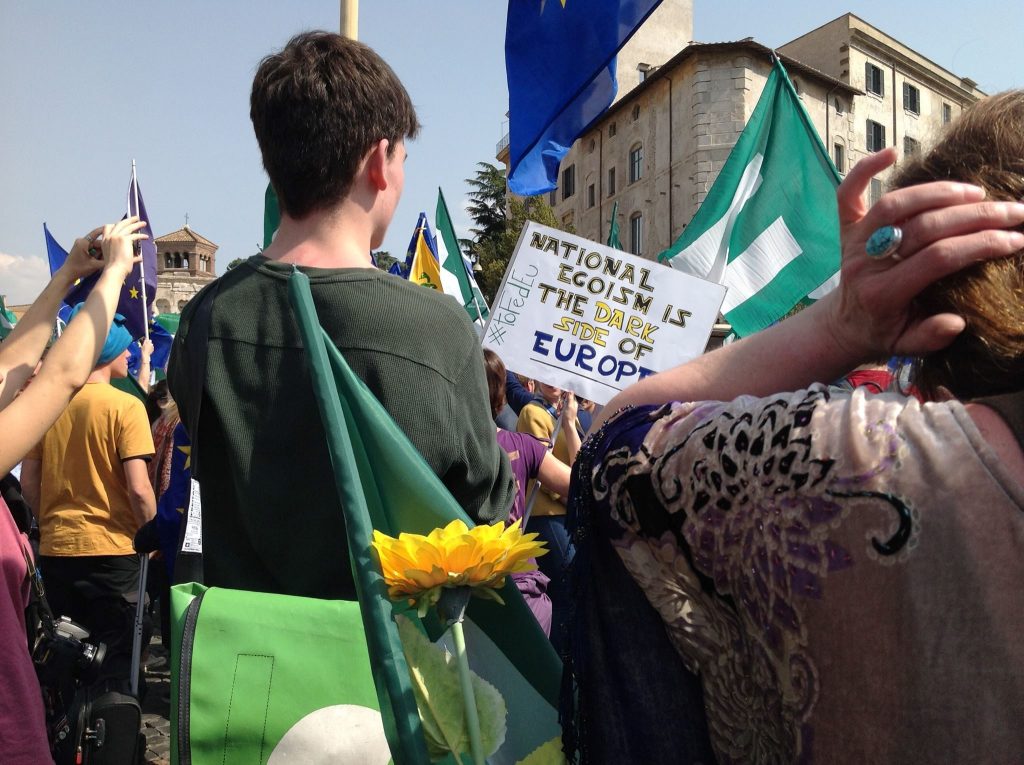
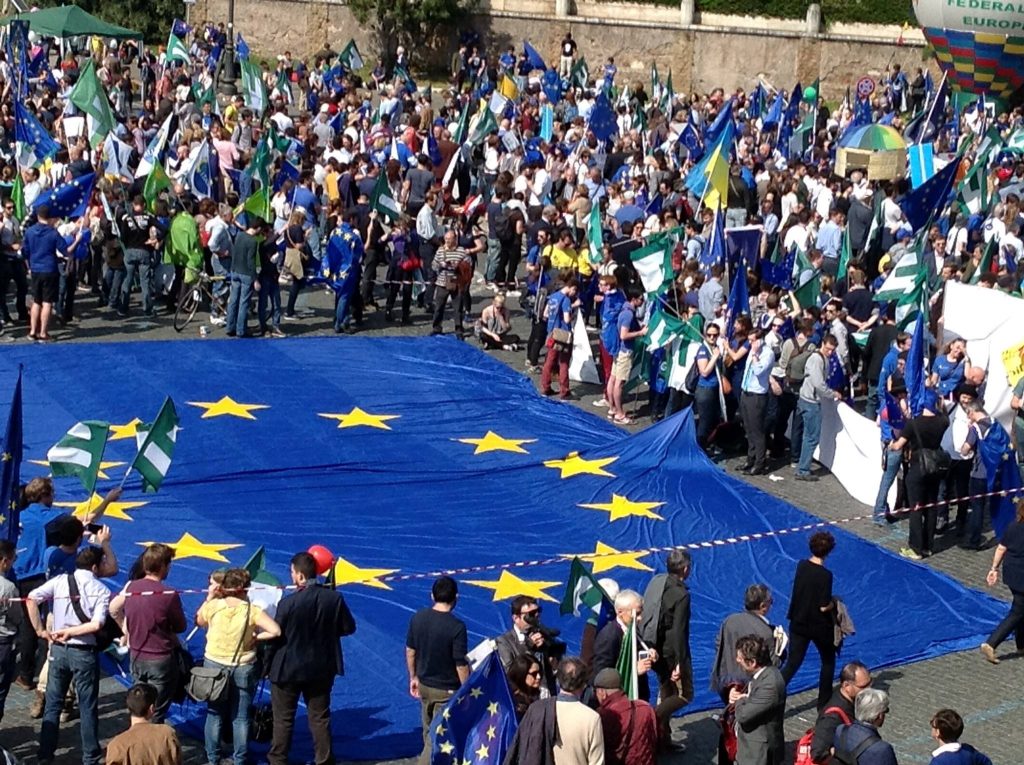
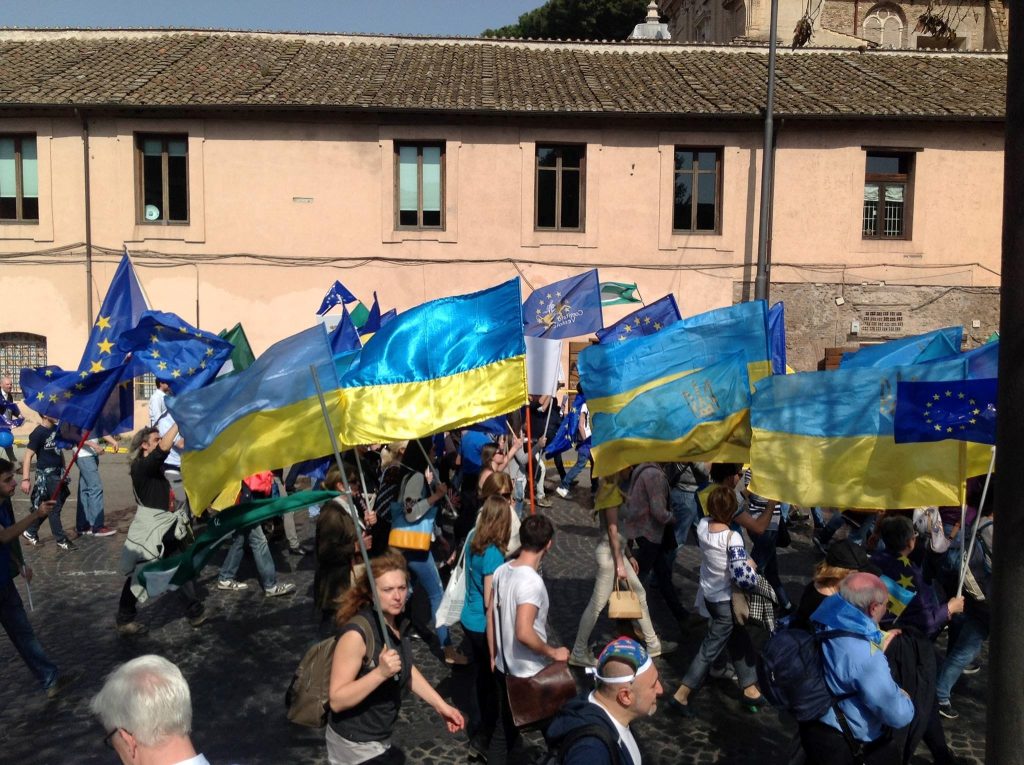
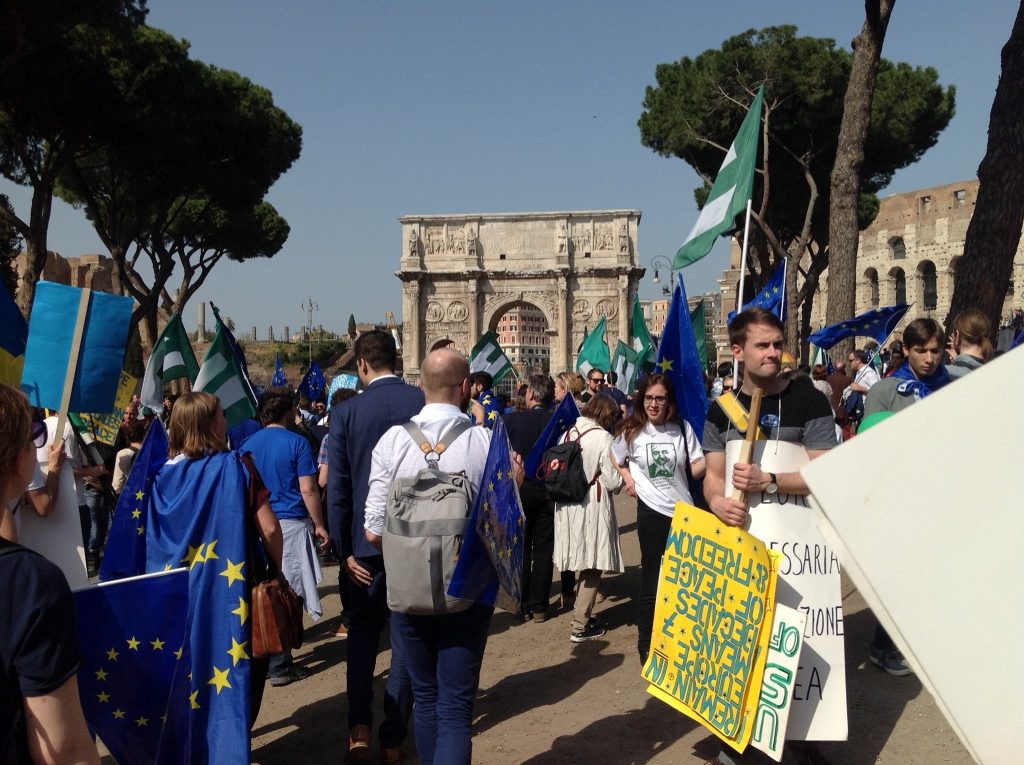
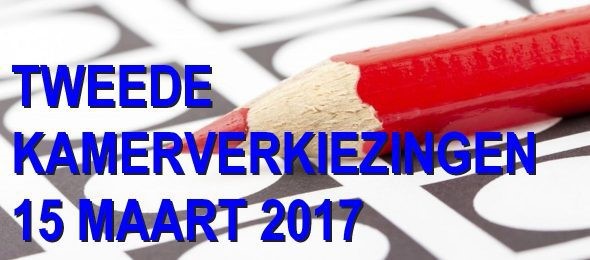

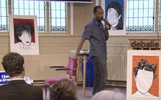
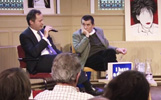
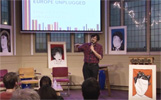
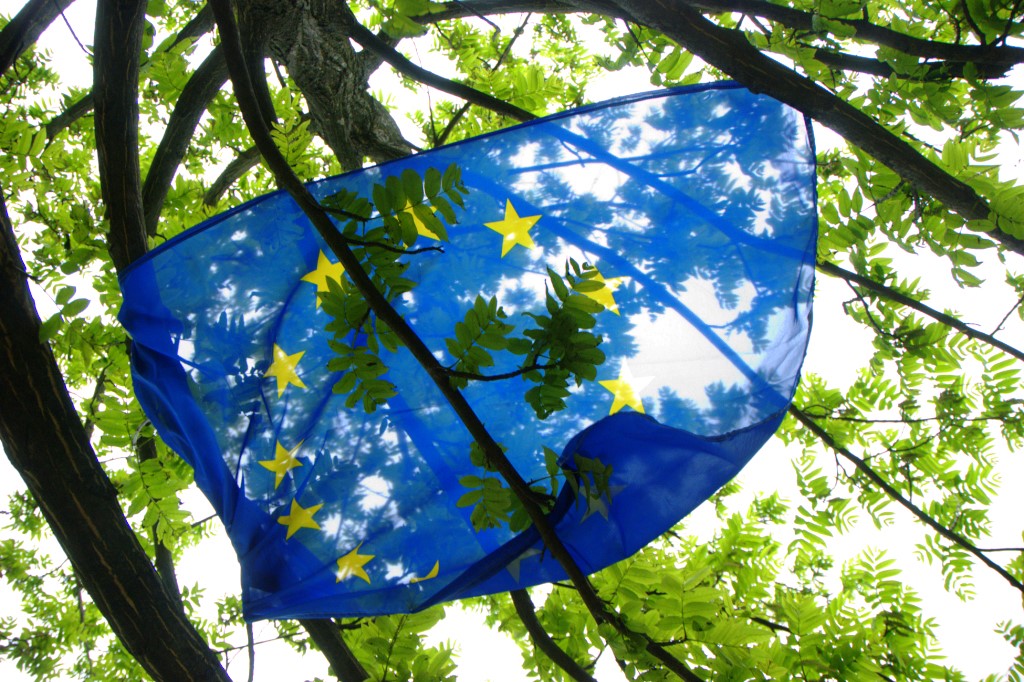
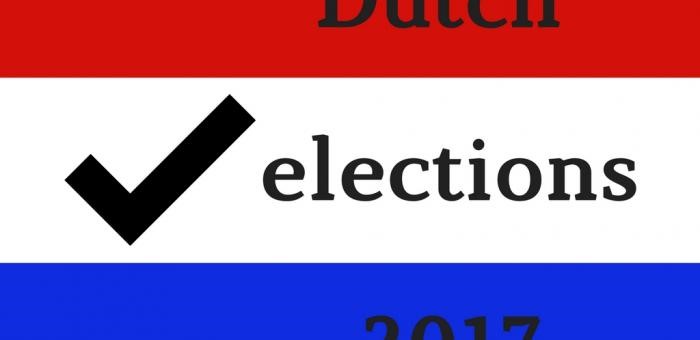
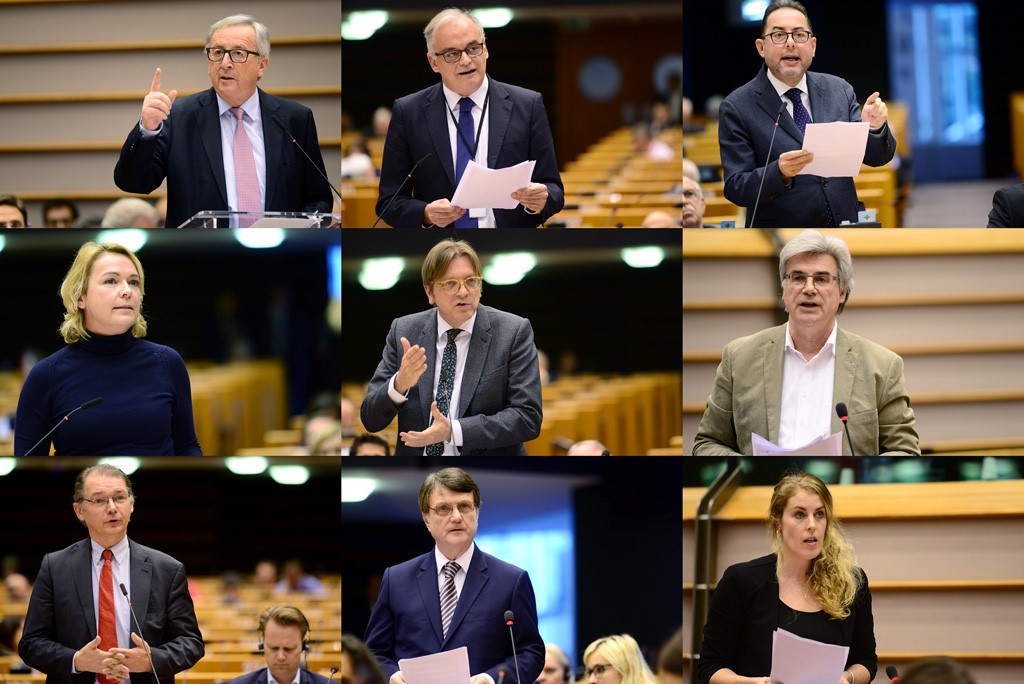
![Making [My Nation] Great Again: Trump, May and Great Lost Nations](https://europesebeweging.nl/wp-content/uploads/2017/01/newspaper.png)
